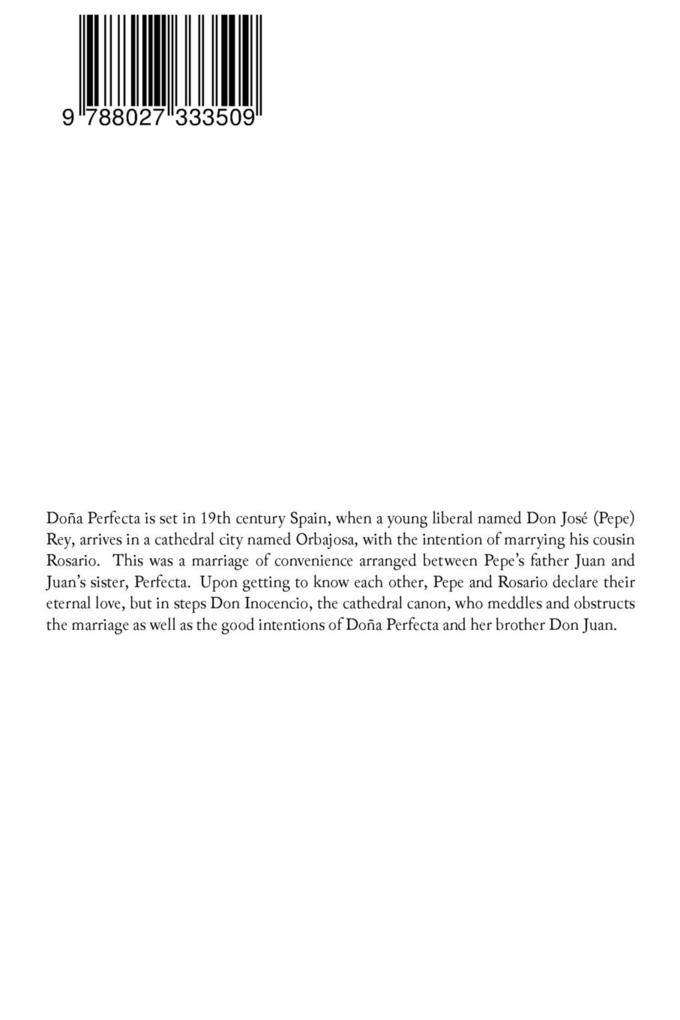
Zustellung: Di, 08.07. - Sa, 12.07.
Versand in 2 Wochen
VersandkostenfreiBestellen & in Filiale abholen:
In "Doñ a Perfecta," Benito Pé rez Galdó s offers a profound critique of Spanish provincial life through the lens of a complex familial and social drama. Set against the backdrop of the late 19th century, Galdó s employs a realist narrative style that deftly intertwines character development with social commentary. The novel explores themes of religious fanaticism, the clash between modernity and tradition, and the constraints of societal expectations, primarily represented through the titular character, Doñ a Perfecta, a staunchly conservative matriarch. Through rich descriptions and sharp dialogues, Galdó s crafts a vivid portrait of a society torn between progressivism and adherence to antiquated values. Benito Pé rez Galdó s, a prominent figure in Spanish literature and a contemporary of the Realism movement, poured his personal experiences and observations of Spanish society into his work. The son of a wealthy merchant in the Canary Islands, Galdó s witnessed various social dynamics and political upheavals. His thorough understanding of human psychology, combined with his hope for a more enlightened society, informed the creation of Doñ a Perfecta, in which he addressed the growing conflicts between liberal ideas and traditionalism prevalent in his time. This novel is an essential read for anyone interested in the evolution of Spanish literature or the intricate interplay between individual agency and societal norms. Galdó s's meticulous character portrayals and incisive explorations of moral dilemmas will resonate with readers who appreciate rich, thought-provoking narratives that challenge the status quo.
Produktdetails
Erscheinungsdatum
15. April 2019
Sprache
englisch
Seitenanzahl
132
Autor/Autorin
Benito Pérez Galdós
Übersetzung
Mary J Serrano
Verlag/Hersteller
Produktart
kartoniert
Gewicht
191 g
Größe (L/B/H)
229/152/7 mm
ISBN
9788027333509
Bewertungen
0 Bewertungen
Es wurden noch keine Bewertungen abgegeben. Schreiben Sie die erste Bewertung zu "Doña Perfecta" und helfen Sie damit anderen bei der Kaufentscheidung.










